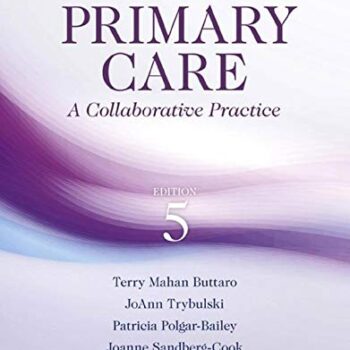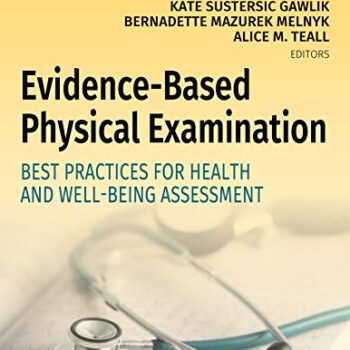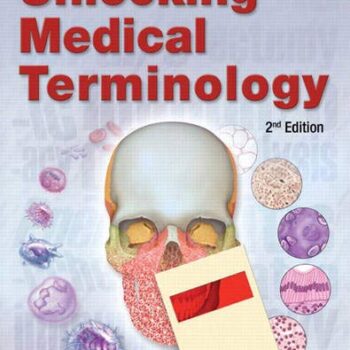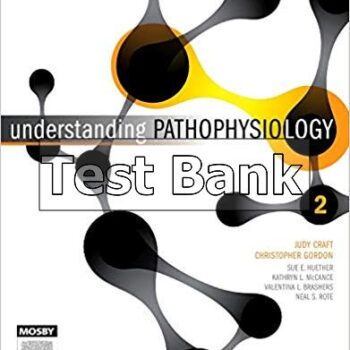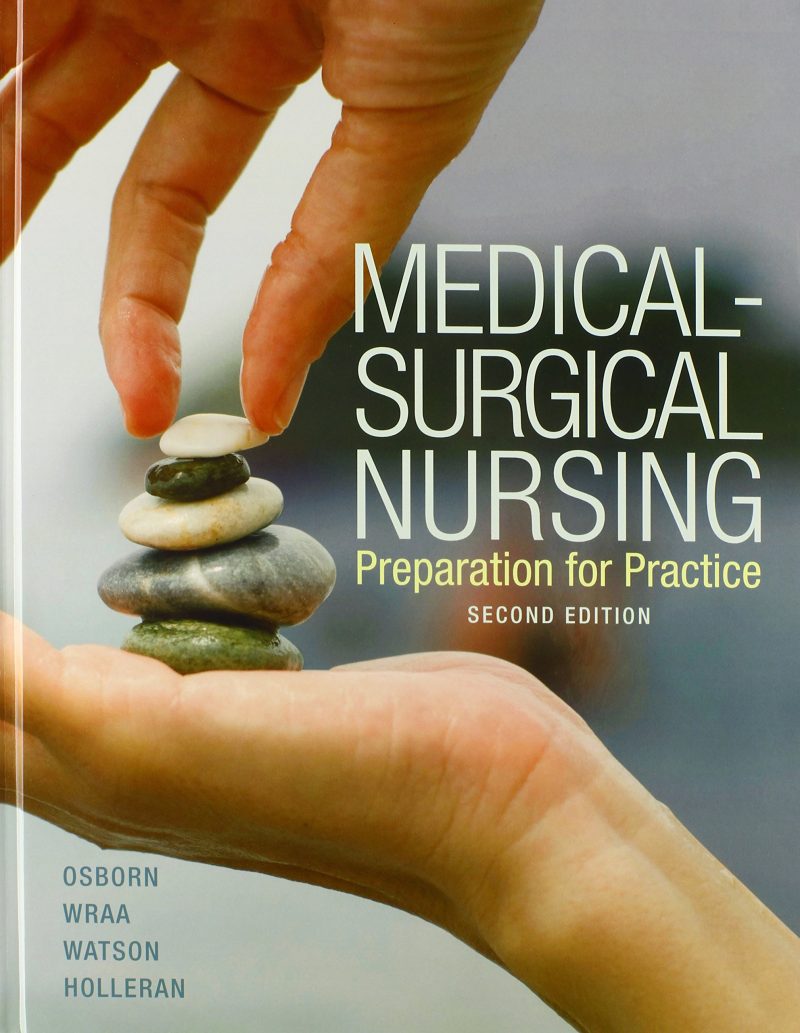
Test Bank For Medical Surgical Nursing 2nd Edition By Osborn Wraa Watson
Original price was: $55.00.$20.00Current price is: $20.00.
Digital item No Waiting Time Instant DownloadISBN-10: 0132706695 ISBN-13: 978-0132706698Publisher : Pearson; 2nd editionAuthors:by Kathleen S. Osborn, Cheryl E. Wraa,Annita S. Watson, Renee S. Holleran
For every nursing student or candidate intending to take their examinations in the coming days, here’s good news for you, the Test Bank for Medical Surgical Nursing, 2nd Edition is what you have been looking for. This test bank has been designed with the focus to provide a practice of sitting an exam in the form of questions that should be utilized to enable students to polish the highlighted areas.
What’s Inside the Test Bank?
This test bank covers nearly all units as outlined in the Medical-Surgical Nursing textbook. They include MCQs, yes or no type of questions, and scenario-based questions. Some of the essential topics featured include:
- Nursing Process and Documentation
- Health Assessment and management of common health problems
- Preoperative, Intraoperative & Postoperative Care
- Other special areas concerning cardiovascular, respiratory, and neurological disorders
- Fluid and Blood Infusion Therapy
- Emphasis on chemotherapy, nutrition, and end of life
The organization follows the sequential order of the textbook which is beneficial as one reviews the material that has been taught.
Why Use this Test Bank?
- Exam Practice: The questions are exam-oriented and based on the textbook which aids students in concentrating on examination likely areas.
- Recognizing Basic Principles: Remember, even as you prepare for the NCLEX, you are still guided by fundamental nursing principles like the provision of safe care to the patient, nursing actions, and matters on the law of the practice of medicine.
- Case-Based Learning: With case-based questions, you will understand the need and ways of applying theoretical concepts in practice as this is vital with respect to the nursing profession.
How Useful Can This Test Bank Be?
It has been noted that a lot of nursing students are constantly bedeviled with the issue of fitting it all into one day when they take their examinations. With practice, this test bank can increase your speed and decrease the number of errors. Of greater importance is the fact that the test questions are similar to examination questions thus, in preparing for this one, one raises chances of being given similar questions come the examination day.
There is also a great appreciation for the fact that an immediate download option is available that enables a user to start their studying without wasting time irrespective of the gadget at hand, phone, tablet, laptop, etc. Because students do not have to carry a physical copy of the book, the PDF format makes studying flexible, since it is portable.
What Are The Best Practices For This Technique?
- Chapter-Wise Revision: Students should open their course textbooks and follow along with the chapters because they need to make sure that all topics have been learned with enough depth.
- Self-Test: Test yourself with the test bank to find subject matter where study is still needed.
- Collaborative efforts: Answering questions in class with colleagues helps to break the monotony of studying alone and enriches one with ideas from others.
Equipped with thorough questions and focused reviews, this test bank prepares students for medical-surgical nursing courses and all other areas in the field with the confidence required to succeed.
Multiple Question Answers
Question 1
Type: MCSA
A nurse notices a particular nursing intervention is not successful in helping patients achieve thehealthcareare goals and decides to study the issue. What should the nurse do first?
1. Identify the problem.
2. Design the sampling plan.
3. Conduct a literature review.
4. Conduct a pilot study.
Correct Answer: 1
Rationale 1: The first step in any research process is to identify a researchable problem, which is a situation in need of a solution, alteration, or improvement. It is an area of concern for a particular population that requires investigation and it is derived from a topical area.
Rationale 2: Designing a sample plan is part of the research design and occurs later in the research process.
Rationale 3: Conducting a literature review occurs after the study question has been defined.
Rationale 4: A pilot study is done after the research is designed.
Global Rationale:
Cognitive Level: Applying
Client Need: Safe Effective Care Environment
Client Need Sub: Management of Care
Nursing/Integrated Concepts: Nursing Process: Planning
Learning Outcome: 3-2
Question 2
Type: MCSA
A qualitative research study has concluded and the nurse researcher is currently watching the study participants to make sure that the research findings can be observed in their routine lives. The nurse is conducting which type of basic research?
1. Ethnography
2. Experimental research
3. Phenomenology
4. Grounded theory
Correct Answer: 4
Rationale 1: Ethnography focuses on the culture of a group.
Rationale 2: Experimental research is a type of quantitative research.
Rationale 3: Phenomenology describes the meaning of a lived experience through the perspective of the participant.
Rationale 4: Grounded theory refers to the idea that conclusions of a qualitative study are grounded in data and based on direct and careful observations of everyday life within the group studied. By observing the study participants, the nurse is following a grounded theory research design.
Global Rationale:
Cognitive Level: Analyzing
Client Need: Safe Effective Care Environment
Client Need Sub: Management of Care
Nursing/Integrated Concepts: Nursing Process: Implementation
Learning Outcome: 3-1
Question 3
Type: MCSA
The nurse asks a patient if he has used a newly developed exercise to relieve the arthritis pain in his shoulders. The nurse is most likely employing which concept?
1. Applied research
2. Basic research
3. Critical thinking
4. Discharge planning
Correct Answer: 1
Rationale 1: Applied research focuses on finding solutions to existing problems. Practicing nurses are most likely to be involved in applied research.
Rationale 2: Basic research is undertaken to extend the knowledge base in a discipline or to formulate or refine a theory.
Rationale 3: Critical thinking is a process to determine the best interventions when planning care and may be based on experience, knowledge, or research.
Rationale 4: Discharge planning is an activity, started upon admission, to determine the patient’s needs once discharged fromhealthcareare facility.
Global Rationale:
Cognitive Level: Analyzing
Client Need: Safe Effective Care Environment
Client Need Sub: Management of Care
Nursing/Integrated Concepts: Nursing Process: Evaluation
Learning Outcome: 3-1
Question 4
Type: MCMA

